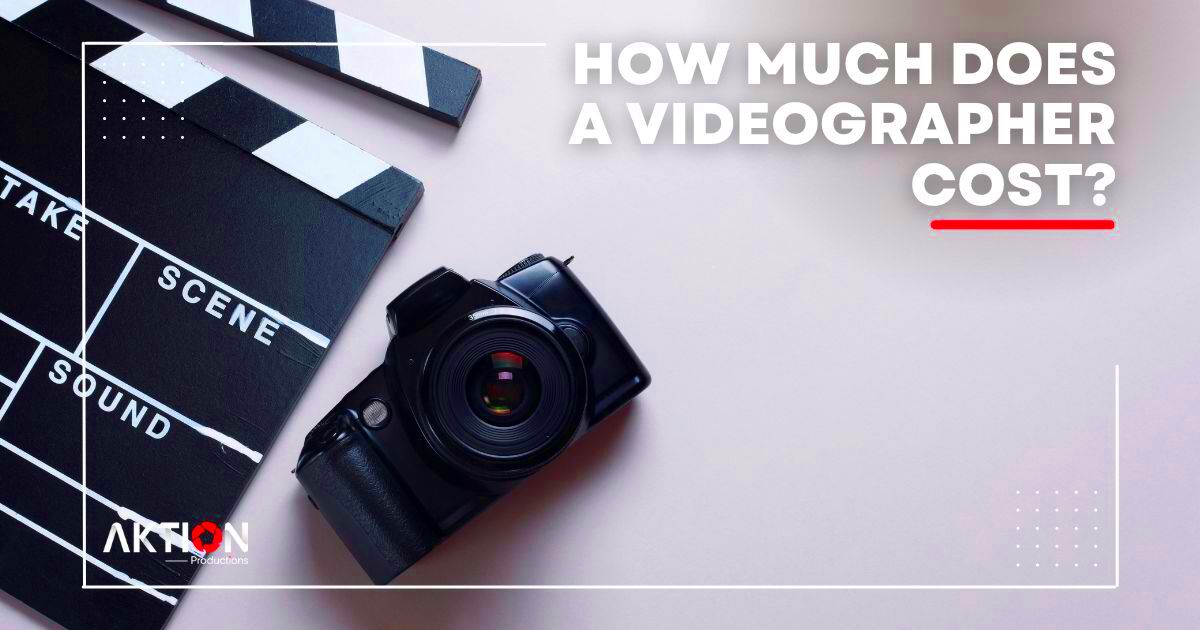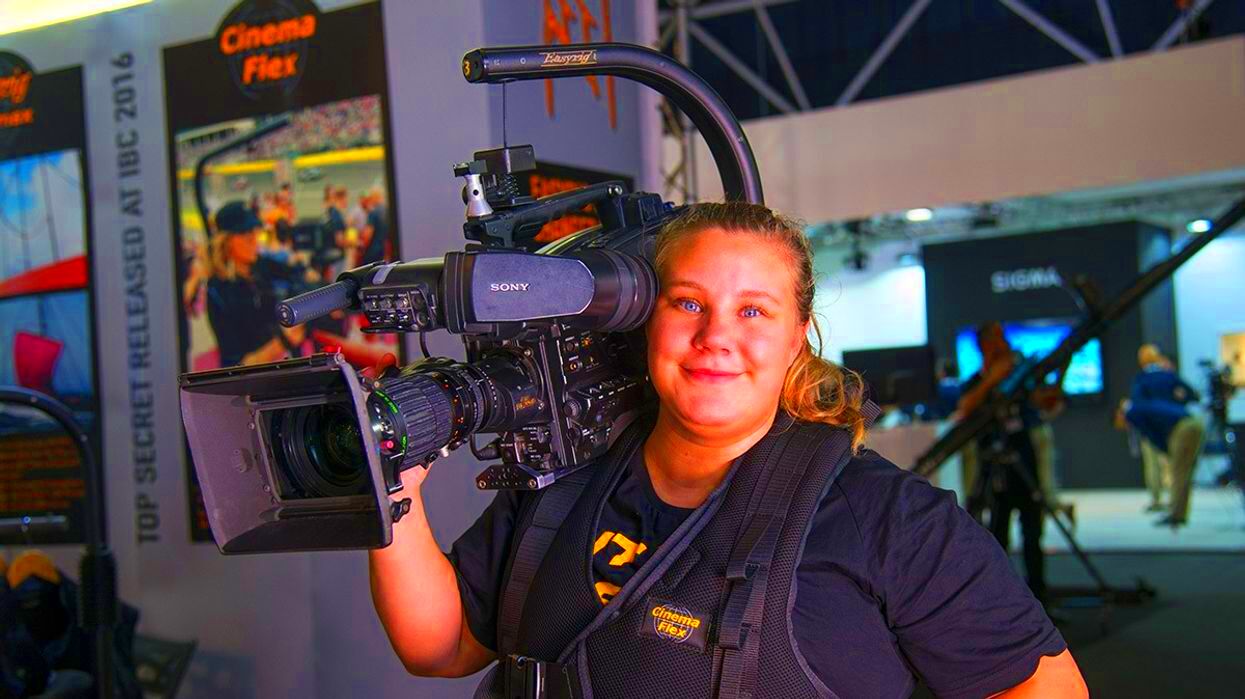Freelance videography can be a rewarding career, but just how much can a freelance videographer make? The income potential varies significantly depending on several factors. From the type of work to the experience level, many aspects influence how much a videographer can earn. As the demand for video content continues to grow across platforms like YouTube, social media, and businesses, freelance videographers have ample opportunities to earn money. However, it's important to understand that income can fluctuate depending on these influencing factors, and not all videographers earn the same amount.
Factors That Influence Freelance Videographers' Income

The amount a freelance videographer earns depends on several key factors. Here are some of the most significant ones:
- Experience Level: More experienced videographers tend to charge higher rates, as their skillset and portfolio are more refined.
- Location: Where you’re based can greatly influence your earnings. Major cities tend to offer more opportunities and higher pay rates.
- Specialization: Videographers who specialize in specific types of videography, like wedding or corporate events, often charge higher fees.
- Client Type: Working with high-end clients or large companies can lead to bigger projects and better pay.
- Equipment: Having the latest equipment can help you attract higher-paying clients, though it’s also an investment.
All of these factors combine to shape the overall income a freelance videographer can earn. As the industry continues to evolve, staying adaptable and improving your skills will help you grow your income potential.
Also Read This: How to Earn Big on Fiverr
Average Income for Freelance Videographers

The income of a freelance videographer can vary widely. On average, a freelance videographer can make anywhere from $25 to $100 per hour, depending on their skill level and the type of work they do. Here's a rough breakdown of potential earnings:
| Experience Level | Average Hourly Rate |
|---|---|
| Beginner | $25 - $50 per hour |
| Intermediate | $50 - $75 per hour |
| Experienced | $75 - $100+ per hour |
These rates can also fluctuate based on the type of project. For example, wedding videography or commercial filming often comes with higher fees compared to smaller projects like personal vlogs or event filming. Freelancers who take on multiple projects throughout the month can also increase their income significantly, with some earning upwards of $60,000 to $100,000+ annually.
Also Read This: How to Delete an Order on Fiverr
How Location Affects Freelance Videography Rates
Your location plays a significant role in determining how much you can charge for your videography services. Certain areas, especially large cities, offer more opportunities and higher rates, while smaller towns or rural areas might have fewer clients and lower rates. Here's a breakdown of how location influences freelance videography rates:
- Major Cities: Cities like New York, Los Angeles, and London offer higher demand for videography services, leading to better-paying projects. These areas also attract larger businesses and commercial opportunities.
- Smaller Towns: In less populated areas, there may be fewer clients looking for videographers, which means you may have to adjust your rates accordingly to stay competitive.
- Regional Trends: Different regions have different demands for specific types of videography. For example, beach towns may have a higher demand for wedding videography, while tech hubs may focus more on corporate videos.
- Travel Costs: If you’re traveling for shoots, the cost of transportation, accommodation, and other expenses can impact your rates. Be sure to factor in these costs when quoting a project outside your local area.
Understanding the local market and adjusting your pricing accordingly is key to earning well as a freelance videographer. It’s important to research and assess your location to gauge where your rates should fall, based on the demand and competition in the area.
Also Read This: How Many Freelancers are on Fiverr? Exploring the Numbers and Trends
Understanding Different Freelance Videography Niches
Freelance videography offers various niches, and each one comes with its own set of rates, client expectations, and opportunities. Knowing which niche you want to focus on can help you refine your skills, build a targeted portfolio, and set competitive rates. Here are some common niches in freelance videography:
- Wedding Videography: This niche is very popular, and clients are often willing to pay a premium for high-quality footage. Wedding videographers can charge anywhere from $1,500 to $5,000+ depending on experience and package.
- Corporate Videography: Businesses need videos for marketing, training, and promotions. Corporate videography tends to have higher pay rates due to the professionalism and complexity involved.
- Event Videography: Whether it’s a concert, conference, or sports event, event videographers are hired to capture live moments. These projects may pay less than weddings or corporate work, but they can provide a steady stream of opportunities.
- Real Estate Videography: With the rise of virtual tours and promotional videos for properties, real estate videography has become a highly profitable niche.
- Social Media Content: Many businesses and influencers need short, engaging videos for platforms like Instagram and TikTok. This niche offers more flexibility, but the pay might vary based on the project's scope and client size.
By understanding the different videography niches, you can better tailor your offerings to a specific market, which could increase both your earning potential and your job satisfaction.
Also Read This: How to View Your Balance on Fiverr
Tips to Increase Your Freelance Videography Income
If you're looking to increase your income as a freelance videographer, there are several strategies you can use. From enhancing your skillset to expanding your client base, these tips can help you earn more:
- Specialize in a Niche: As mentioned earlier, specializing in a specific area of videography can set you apart from the competition. Clients often pay more for specialized skills.
- Build a Strong Portfolio: A well-curated portfolio showcasing your best work is essential to attracting high-paying clients. Focus on quality over quantity, and make sure it reflects your skills and style.
- Increase Your Rates Gradually: As your experience grows, don’t be afraid to raise your rates. Communicate the value of your services to clients, and show them the benefits of working with you.
- Upsell Services: Offer add-ons such as drone footage, extra editing, or faster turnaround times. These additional services can boost your income from each project.
- Network and Market Yourself: Networking is crucial for freelancers. Attend industry events, collaborate with other creatives, and use social media to showcase your work. The more people know about your services, the more clients you'll attract.
- Invest in Equipment: Having professional-grade equipment can help you produce higher-quality videos, which in turn can justify higher rates. It’s an investment that pays off in the long run.
- Offer Packages: Instead of just offering hourly rates, consider offering packages for different services. For example, a wedding videography package could include pre-event shoots, the ceremony, and editing for a fixed price, making it easier for clients to decide to book you.
By following these tips and staying proactive, you can increase your income and grow your freelance videography business over time.
Also Read This: Charges for Freelance Website Projects
Common Challenges Freelance Videographers Face
While freelance videography offers plenty of freedom, it also comes with its own set of challenges. Many videographers face hurdles that can affect their business and income. Understanding these challenges can help you prepare and find ways to overcome them. Here are some of the most common challenges:
- Inconsistent Income: Freelance videographers often deal with fluctuating income. Some months may be filled with projects, while others can be dry. Learning to manage your finances and budgeting is crucial for handling lean periods.
- Finding Clients: One of the biggest struggles for freelance videographers is constantly finding new clients. Without a solid marketing strategy, it can be difficult to generate consistent business.
- Time Management: Freelancers have to juggle multiple tasks—shooting, editing, communicating with clients, and handling business matters. Effective time management is essential to avoid burnout and meet deadlines.
- Dealing with Scope Creep: Sometimes clients ask for more than what was agreed upon in the original contract, leading to scope creep. It’s important to have clear contracts and set boundaries to avoid working more than expected without additional payment.
- Equipment Maintenance and Upgrades: Videography equipment can be expensive, and it needs regular maintenance and occasional upgrades. Keeping up with technology is essential to stay competitive but can also be a financial strain.
Though these challenges may seem tough, many videographers find ways to adapt and succeed by staying organized, networking, and constantly refining their skills.
Also Read This: How to Make a Gig Active in Fiverr
Frequently Asked Questions
Here are some frequently asked questions about freelance videography that can help clarify common concerns and provide useful insights for aspiring videographers:
- How much do freelance videographers make per project?
It varies greatly depending on the project type and your experience. Wedding videographers can charge anywhere from $1,500 to $5,000+, while smaller projects like event coverage might earn you $500 to $2,000. - Do I need to specialize to make more money?
While it’s not necessary, specializing in a niche can help you stand out and attract higher-paying clients. Wedding videography, corporate filming, and real estate videos are examples of profitable niches. - How do I find clients as a freelance videographer?
Networking, building a portfolio, using social media, and attending industry events are great ways to find clients. Additionally, platforms like Fiverr or Upwork can help you get started. - What equipment do I need to start as a freelance videographer?
At a minimum, you’ll need a good camera, tripod, microphone, and video editing software. As you progress, you can invest in higher-quality gear, such as drones or lighting kits. - How do I handle client revisions and feedback?
Always clarify expectations upfront in your contract and communicate effectively throughout the project. If a client requests changes outside the original agreement, make sure to discuss how this will affect the price or timeline.
Conclusion
Freelance videography can be a fulfilling and profitable career, but it comes with its own set of challenges. By understanding the factors that affect earnings, diversifying your skills, and finding ways to overcome common obstacles, you can build a successful videography business. Remember, patience, persistence, and a willingness to adapt are key to succeeding as a freelance videographer. Whether you’re just starting out or looking to take your business to the next level, staying organized and focused on your goals will help you achieve long-term success. Keep improving your craft, networking, and providing quality service, and the opportunities will follow.




